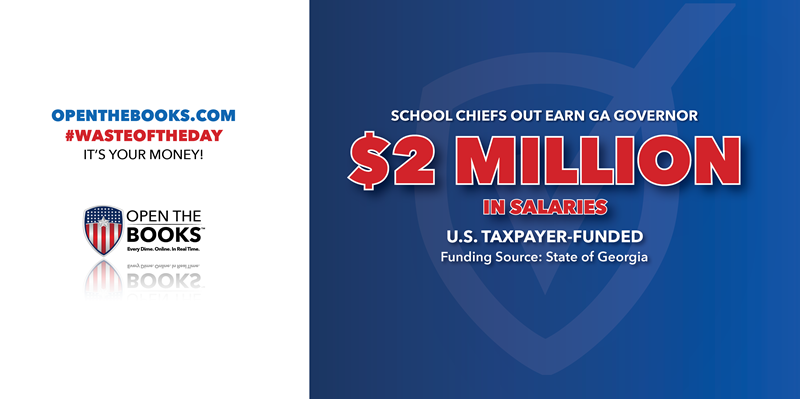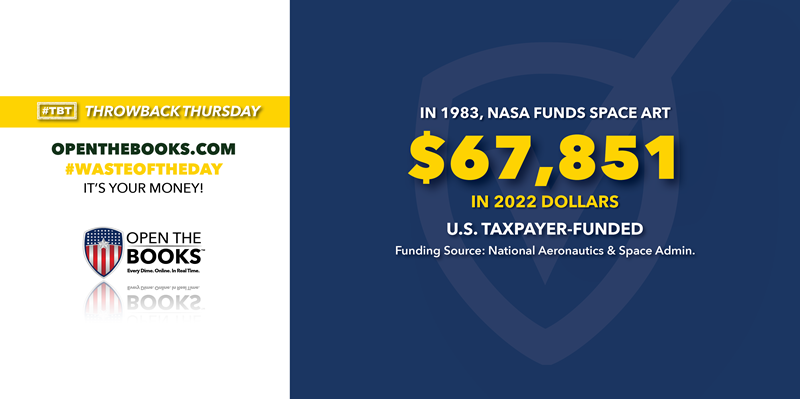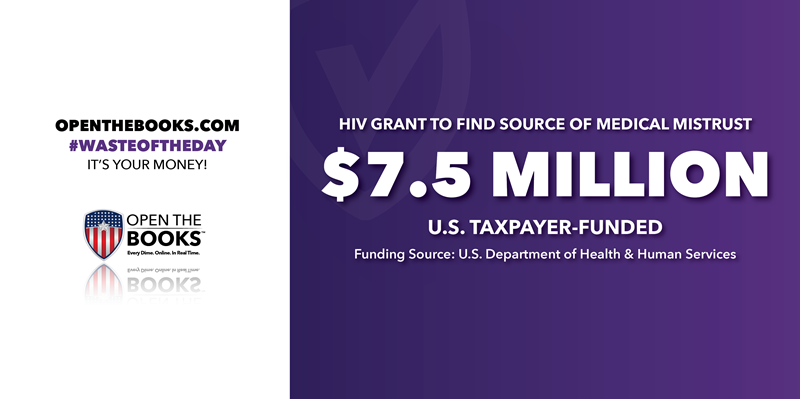
Georgia School Superintendents Out Earn Governor
January 9, 2023

In Georgia, extravagant compensation packages have led to multiple county school superintendents out earning some of the state’s most senior officials, including the governor.
Most senior officials in Georgia government earn comfortable salaries, with Gov. Brian Kemp earning $175,000 per year, Secretary of State Brad Raffensperger making $123,637 per year, and Attorney General Chris Carr making $139,169 per year.
Compared to some regional school superintendents, though, these statewide officials are paid little. Even federal officials like U.S. senators, who earn a salary of $174,000 per year, only earn a fraction of these superintendents’ salaries.
Calvin Watts, superintendent for Gwinnett County Public Schools in a suburb of Atlanta, earns a base salary of $380,972 with total compensation of $413,372 with transportation and expense allowances.
Despite being superintendent of the largest school district in Georgia, his pay isn’t the highest among his colleagues.
In Pickens County, Superintendent Richard Townsend earns $507,659 per year. Pickens County also employs another superintendent, Anthony Young, at $123,562 per year. Dekalb County spent a combined $650,000 on two superintendents — $325,000 each to a new superintendent and severance to an outgoing superintendent — while Cobb County’s superintendent made $432,105 per year.
While this is just a small sampling from many Georgia school districts, it’s clear most districts are willing to pay a premium for a superintendent. Despite the extravagant compensation packages, Georgia still ranks 26th in the country in state education systems in the U.S.
Public servants like public school superintendents shouldn’t be getting rich on the backs of taxpayers. Yet taxpayers in Georgia are funding lavish administrator salaries.
U.S. to Give Switzerland, Liechtenstein $60K to Strengthen Cultural Ties
January 10, 2023

The U.S. is giving Switzerland and Liechtenstein, two of the wealthiest countries in the world by GDP per capita, $60,000 to strengthen cultural ties with the U.S.
The U.S. Mission to Switzerland recently announced the grant will fund “cultural and exchange programming that highlights shared values and promotes bilateral cooperation and dialogue.”
Swiss and American nonprofits can apply, with programs that receive funding including elements of American culture that increase understanding of U.S. policy and perspectives. Programs should also reflect U.S. strategic priorities like STEM education, diversity, equity, and inclusion initiatives, climate change awareness, cybersecurity, and other topics, according to the grant announcement.
The programs should be targeted toward residents aged 14-35, emerging and established opinion leaders, young entrepreneurs, or underrepresented minority groups.
The U.S. State Department often funds similar grants to other countries, but typically in those cases, the U.S. is sending money to strategic allies that need help financially. Neither of these two countries meet either criterion.
Switzerland and Liechtenstein are two of the wealthiest countries in the world, with the pair of countries ranking #4 and #2 in the world for GDP per capita, respectively. These countries are some of the last in the world to need international aid.
Additionally, both countries are geopolitically neutral, meaning strategic relationships with these countries bring virtually no benefit to the U.S. in terms of strategic international diplomacy. They are not members of the European Union, NATO, or other western alliances.
Spending tens of thousands of taxpayer dollars to teach American culture to small, wealthy, and neutral European countries isn’t helping anyone. Yet, year after year, wasteful programs like these continue to be funded.
Tennessee Congressman Gets $2.7M for Nashville Mayor, His Brother
January 11, 2023

Earmarks are back, with Congress’ recent spending bill containing over $16 billionin earmarks. This includes earmarks by Congressman Jim Cooper (D-Tenn.), that went directly to Metropolitan Government of Nashville and Davidson County, where his brother, John Cooper, is the mayor.
Earmarks are special funding mechanisms that allow federal legislators to designate money for local projects in their states or districts. Dubbed “the currency of corruption,” earmarks were once banned but legislators voted to bring them back in 2021.
Auditors at OpenTheBooks.com analyzed the federal earmarks database, and found that Congressman Cooper authorized two earmarks, one worth $2.2 million for unspecified “facilities and equipment,” and another worth $539,000 for an “urban forestry project.” Both go directly to his brother John Cooper’s unit of government, Metro Nashville.
Congressman Cooper, who is retiring at the end of this term, earmarked a total of $17.9 million over 10 earmarks for his district, including $4 million to the Fisk University John R. Lewis Center for Social Justice — Race Relations Building, and $2.5 million to the Moves & Grooves Center for Art & Innovation. Overall, the Tennessee delegation in Congress brought in a combined $98.7 million for the state.
While earmarking money for a family member’s unit of government may be unethical, it’s not illegal, which demonstrates why earmarks are so liable to abuse. Taxpayers in New Mexico and Montana shouldn’t be funding Nashville government, but with the return of earmarks, citizens all over the country are paying the price.
Throwback Thursday: In 1983, NASA Spent $22K on Art and Music in Space
January 12, 2023

Throwback Thursday!
In 1983, the National Aeronautics and Space Administration spent $22,700 — over $67,851 in 2023 dollars — to seek out composers and artists to create art and music for a future space station.
Senator William Proxmire, a former Democrat from Wisconsin, awarded NASA his monthly Golden Fleece Award for this creative waste of taxpayers’ money.
According to Proxmire, the purpose of this grant was to “examine the possibility of using artists and the arts in a NASA space station in the future.” A member of NASA’s Space Station Task Force defended this grant, stating that NASA was looking to spruce up space stations for theoretical future tourists.
Specifically, the purpose of the grant was to “survey existing literature in a broad range of disciplines on the interactions of arts and science, and their cross influences,” as well as “solicit and summarize opinions from a broad range of scientists and artists who have expressed interest in utilizing space as a medium for art endeavor.” Finally, the grant authorized researchers to “potentially solicit brief proposals from artists interested in this area and summarize these for further consideration by NASA.”
Examples of space art included, but were not limited to, composer fellowships in space, arrangements of materials in zero gravity that would be visible from Earth, and interior and exterior designers for the space station itself.
As Proxmire noted, while NASA may have been sincere in its intentions, spending money the U.S. doesn’t have to study and plan theoretical space art installations on space stations that don’t exist is just plain “luney.”
HHS to Spend $7.5M to Find Mistrust Among Hispanic Gay Men
January 13, 2023

The U.S. Department of Health and Human Services will spend $7.5 million to prevent HIV by identifying areas of medical mistrust between Hispanic and Latino gay and bisexual men.
The grant, funded through the Centers for Disease Control and Prevention, begins by noting that, “Medical mistrust is associated with HIV disparities among Hispanic/Latino gay, bisexual, and other men who have sex with men by preventing or delaying access to HIV services.”
To remedy this, the grant aims determine why Hispanic/Latino men who have sex with men have distrust for medical providers and find a way to build trust “to improve access and utilization of HIV prevention and care services.”
The grant also plans to evaluate the implementation of interventions “that build trust in health and HIV prevention services.”
While HIV prevention is a laudable cause, this grant does very little to reduce medical mistrust or prevent HIV. By simply studying “drivers of medical mistrust” and evaluating the feasibility of interventions, nobody is actually being helped by this grant, despite the high price tag.
This grant would accomplish much more if the scope also included implementing these findings to reduce HIV rates. Instead, it merely studies causes of medical mistrust and potential interventions with no action. It’s outrageous to spend $7.5 million on a study with no action associated with it.
The #WasteOfTheDay is presented by the forensic auditors at OpenTheBooks.com.